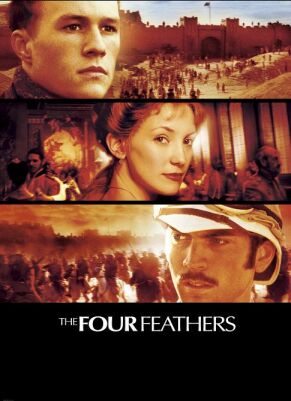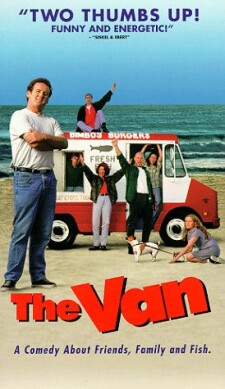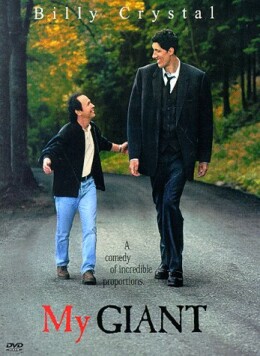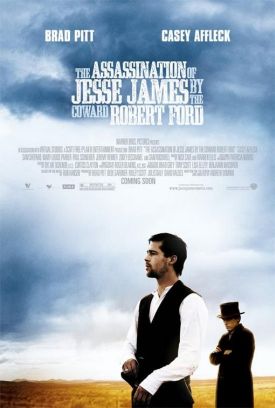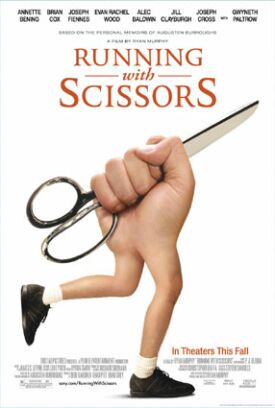Four Feathers, The
The press material for The Four Feathers, Shekhar Kapur’s remake, 63 years on from the last remake, of A.E.W. Mason’s tale of derring do in the British Sudan of the 1880s and 90s, claims that it is “a look at man’s indomitable spirit to survive.” Unfortunately this is true. The original, you may be dimly aware, was not about man’s spirit to survive at all but rather man’s spirit to put others ahead of his own survival, which used to be known as courage. Or perhaps honor. So far as it goes, Kapur’s version is not a completely contemptible re-telling, but like his Elizabeth (1998), it withdraws its characters from their historical context, adds more than a dollop of political correctness, and so makes a nonsense of the thing.
The story of The Four Feathers was immensely popular in its day — that is from the time the novel was written just 100 years ago until the fifth movie adaptation (though the first sound version) in 1939 — but it looks hopelessly old fashioned today. No wonder Mr Kapur felt he had to make it more contemporary. For what could be more primitive to our advanced ways of thinking than a story about a man, Harry Faversham (Heath Ledger), whose refusal to fight in an obviously imperialistic and racist war induces three of his closest friends and his fiancée to send him white feathers, the symbol of cowardice, which he then feels he has to redeem by performing extraordinary feats of bravery?
Shekhar implicitly acknowledges the difficulty by having Harry’s father, played by Tim Piggott-Smith, begin his toast at a regimental dinner by mangling Dr. Johnson’s famous quotation about how “every man thinks but meanly of himself for never having been a soldier or never having been to sea” — and then saying, rather absurdly, that no one among those present need concern himself about that. The point is clearly to elicit, if possible, some sort of responsive chord in the non-military movie audience, which will then begin to have an understanding of why a man might feel meanly about himself, as Harry does, for having resigned his commission on the eve of being sent to war in the Sudan.
It is a happy thought, thus to suggest that Dr. Johnson may have put his finger on something permanent in human nature, something which, unlike heroic tales of the British Raj, never dates. But the film has little more to say of the matter than this. When Harry is explaining to his fiancée, Ethne (Kate Hudson) that he only joined the army to please his father, she quietly replies: “Do you think people will let us forget this?”
“I don’t care what people think. I just care about us.”
“It’s not just about us,” she says, most implausibly, in the language of our own time. What it is “about” is explored no further, at least not by this Ethne, who is subsequently more remorseful about having sent the feather than she was disappointed in Harry when she sent it. Here, for the record, is what the 1939 version of her character (June Duprez) — who also later regrets having sent the feather, but not so effusively — says at this point, after Harry (John Clements) claims to be free to leave off soldiering: “Others may be free, but we’re not free. We were born into a tradition, a code that we must obey even if we do not believe. And we must obey, Harry, because the pride and happiness of everyone around us depends on our obedience.”
A little more elegant, as well as being a little more in period, I think you will agree, than “It’s not just about us.” Made on the eve of Britain’s entry into the Second World War, the earlier film is an interesting historical document, apart from anything else, and Ethne’s words here express what was probably the most widespread opinion there, at least among the intellectual classes, at the time. It was unacceptably old-fashioned, very “pre-war” (the 1914-18 war, that is), to “believe” in any great cause which was at stake in the war against Hitler (how strange that seems now, looking back on it!), but somehow the “tradition” or the “code” which required them to take up arms became a convenient way to speak of the sense of solidarity, the concern for “the happiness of everyone around us,” that people did feel, and respond to as Ethne would have wished.
Nowadays, Harry’s behavior is more of a mystery. True, Kapur has him make an attempt later on to explain why he feels so bad about what he has done: “Something like this happens and you’re lost; you don’t know who you are any more and what you’re capable of. This is how people will always remember me” — holding up one of the feathers — “and how I will always see myself, a coward.” That is why “I have to believe that this time I will face up to my fears and prove myself not a coward.” Though not exactly compelling and rather murkily psychological, this is a fair basic statement of what the story is about. But its vagueness and unfamiliarity proves too much for Kapur, who thereafter loses all focus on what ought to be this basic theme. Instead, he finds a much more congenial subject in treating, and trying to defuse criticism of, the implied racism and imperialism in his material.
Imperialism? Does anyone doubt that the Sudan — the scene of a savage civil war that has been raging for 19 years and has been described by the Washington Post as “possibly the greatest humanitarian disaster on earth” — would be infinitely better off if the British had never left? But sooner than identify himself and his film with the troops of the British empire, Kapur leaves out everything but a brief mention of the politics of the Sudan campaigns of the 1880s and 1890s — this even though the enemy of the British, the Mahdi, might easily be seen as the direct ancestor of Osama bin Laden. The fall of Khartoum happens offstage, and the Battle of Omdurman, including the seemingly irresistibly cinematic subject of the last cavalry charge of the British army, is left out altogether.
The lack of a sense of history tells in other ways — for instance in the portrayal of the British in the Sudan as such simple-minded racists that they won’t even take a warning of impending disaster from a black man. One of Harry’s friends orders the well-spoken Abou Fatma (Djimon Hounsou) not to speak English (why?) and then instructs his interpreter to “tell him a British garrison would never fall to the Mahdi’s savages” and “I’m not going to waste the colonel’s time by sending some half naked savage to him with a tall tale.” This, mind you, in the immediate aftermath of the fall of Khartoum, which is what has brought these troops out to the Sudan in the first place! Kipling’s version of the British attitude towards the natives seems much more likely to be accurate:
So ’ere’s to you, Fuzzy-Wuzzy, at your ’ome in the Soudan;
You’re a pore benighted ’eathen but a first-class fightin’ man.
Likewise, Harry’s musing before resigning his commission — “I sometimes wonder what a godforsaken desert in the middle of nowhere has to do with Her Majesty the Queen” — sounds suspiciously like a Vietnam-era draft resister.
But the worst of the movie’s historical sins is also an aesthetic one, and it lies in introducing into the story the character of Abou and making him into Harry’s Wise Black Counselor, a man of the superior and mystic spirituality with which, a century later, we associate what the Victorians would have called primitive peoples. In other words, he is a variation on the romantic notion of the Noble Savage that has been around for at least three centuries and that makes him a Jim to Harry’s Huck or a Tonto to his Lone Ranger only more so. He is the real hero of the film, and Harry’s little difficulty about the feathers begins to seem more and more remote. Even the direct link in the novel and the earlier films between each of the feathers and Harry’s acts of courage as he saves the life of each of those who sent them in turn, is forgotten.
There is a moment near the end when Harry’s best friend, Jack Durrance (Wes Bentley) (who in this version does not send one of the feathers, so as presumably to retain more of our sympathy than he otherwise might) proposes a toast that almost redeems the picture as an exploration of the idea of courage. “In the heat of battle it ceases to be an idea for which we fight, or a flag. Rather we fight for the man on our left and the man on our right. . .And when the empire has fallen away, all that remains is the memory of those precious moments that we spent side by side.” True, all true, but for the watchers of this movie it is rather the memory of the Wise Black Counselor fading in the sunset that remains — together with the mystery of what the British army was doing in that godforsaken desert in the first place.
Discover more from James Bowman
Subscribe to get the latest posts to your email.

